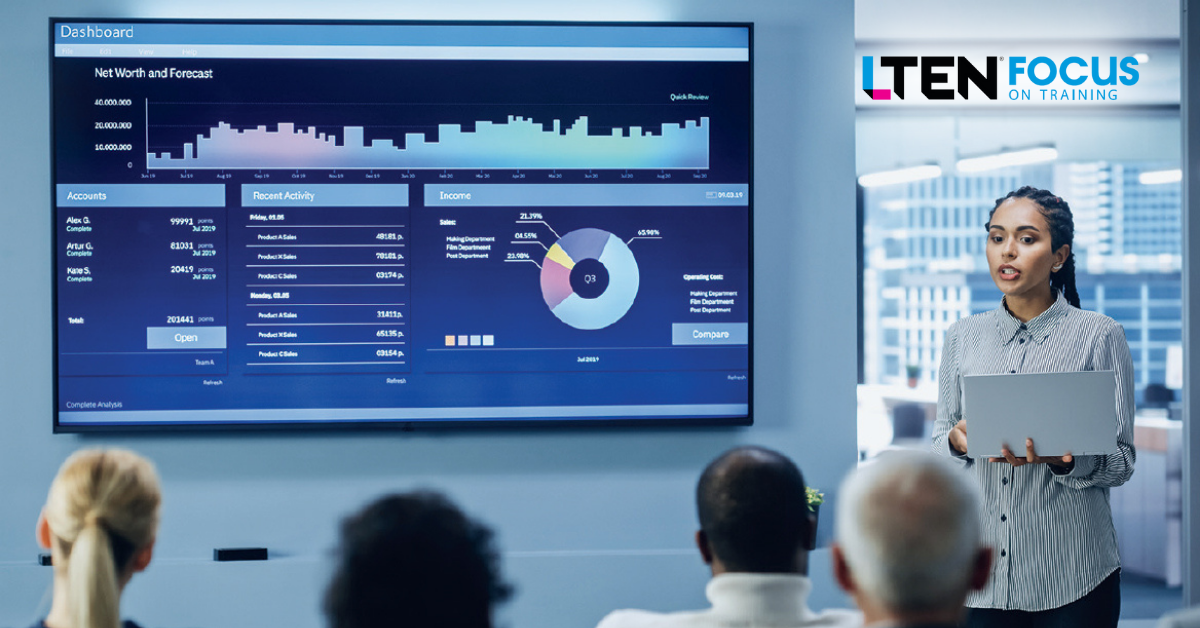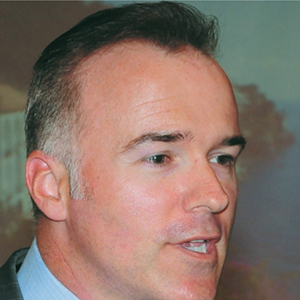
Front of the Room – Brian Lange
We focus on ourselves and our content, not necessarily our audiences
 When you spontaneously spend a considerable amount of time —on a Saturday morning, no less —voluntarily providing feedback to an adult friend’s PowerPoint presentation to be delivered to a high school math class, you may have a problem.
When you spontaneously spend a considerable amount of time —on a Saturday morning, no less —voluntarily providing feedback to an adult friend’s PowerPoint presentation to be delivered to a high school math class, you may have a problem.
Let me explain.
My friend shared with me a 10-slide PowerPoint presentation that he was going to share as a guest speaker for a high school math team on “Pi Day,” March 14 (he’s an actuary by training). When he sent it over to me, he mentioned his daughter had noticed a typo — and invited me to also provide any feedback I might have.
Uh oh. While not prone to critiquing every facet of public speaking on a continual basis, this presentation did capture my attention.
A Fair Reflection
To be fair, my pretty visceral reaction to the slide deck was really not an indictment against my friend or his abilities as a slide creator or presentation designer. I found his presentation to be a reflection of where we are as speakers: a reflection of how often we leave the audience out of our design, and how we fail to connect with what the upcoming experience might be like from the perspective of the audience.
As is often the case, the deck (10 slides) did not contain any pictures, graphics or attempted use of color, though roughly two-thirds of folks have a preference for some aspect of “visual learning,” and was heavy on bullet points.
Again, I see this as a reflection on society as a whole — and not a dig at my friend. This really served as an example to me of how we naturally focus on ourselves and our content, but not necessarily our audiences, when preparing presentations.
My friend had really interesting facts to share — he just didn’t quite see his role as “assisting in the exploration of a topic.” He saw his role as communicating information (facts and figures).
The Learner’s Advocate
To serve as a learner advocate for the students, I sent an e-mail response to him, in which I suggested he use his opening as a way to engage the students. I really believe openings tend to not get the attention they deserve, as I’ve written before. Here’s part of that email:
“I like to use a ‘casual opening’ where I reference something of interest (from an article or personal story), and then use it to bridge and set the stage for the content being explored. Then, I come up with some sort of quick table-team activity that gets groups of four to six people interacting to explore a question/definition/assignment I’ve given.
“This gets their hands dirty in the learning process, and communicates that I – as the facilitator – am not going to be doing all the work! Learning is intensely personal and active, so, I have to find a way to get them connected to the material at hand. Having them put their own knowledge or experience to work helps in this process.”
I really feel that we, as trainers, have the responsibility to be learner advocates —and I know that’s why I put so much time in responding to my friend. I was sticking up for the students.
I ended my e-mail response with this:
“Perhaps I’ve responded too intensely or detailed (well, not ‘perhaps’ but ‘for sure!’). But, I find myself driven by the fact that the students have a lifetime ahead of them (unfortunately) of receiving static PowerPoint presentations – maybe your opportunity is to give them a gift of being involved in the evolution of your presentation, and not just recipients of it.”
Conclusion
To my friend’s credit, he welcomed my suggestions, and planned to redo his presentation.
So, let’s remember, there are no trivial, simple presentations — only opportunities to create meaningful, engaging experiences in which we can relate, interact and learn with others.
 Brian Lange is with Perim Consulting and serves as lead facilitator for LTEN PrimeTime! For Trainers Core and Masters Workshops. Email Brian at blange@perim.com.
Brian Lange is with Perim Consulting and serves as lead facilitator for LTEN PrimeTime! For Trainers Core and Masters Workshops. Email Brian at blange@perim.com.








